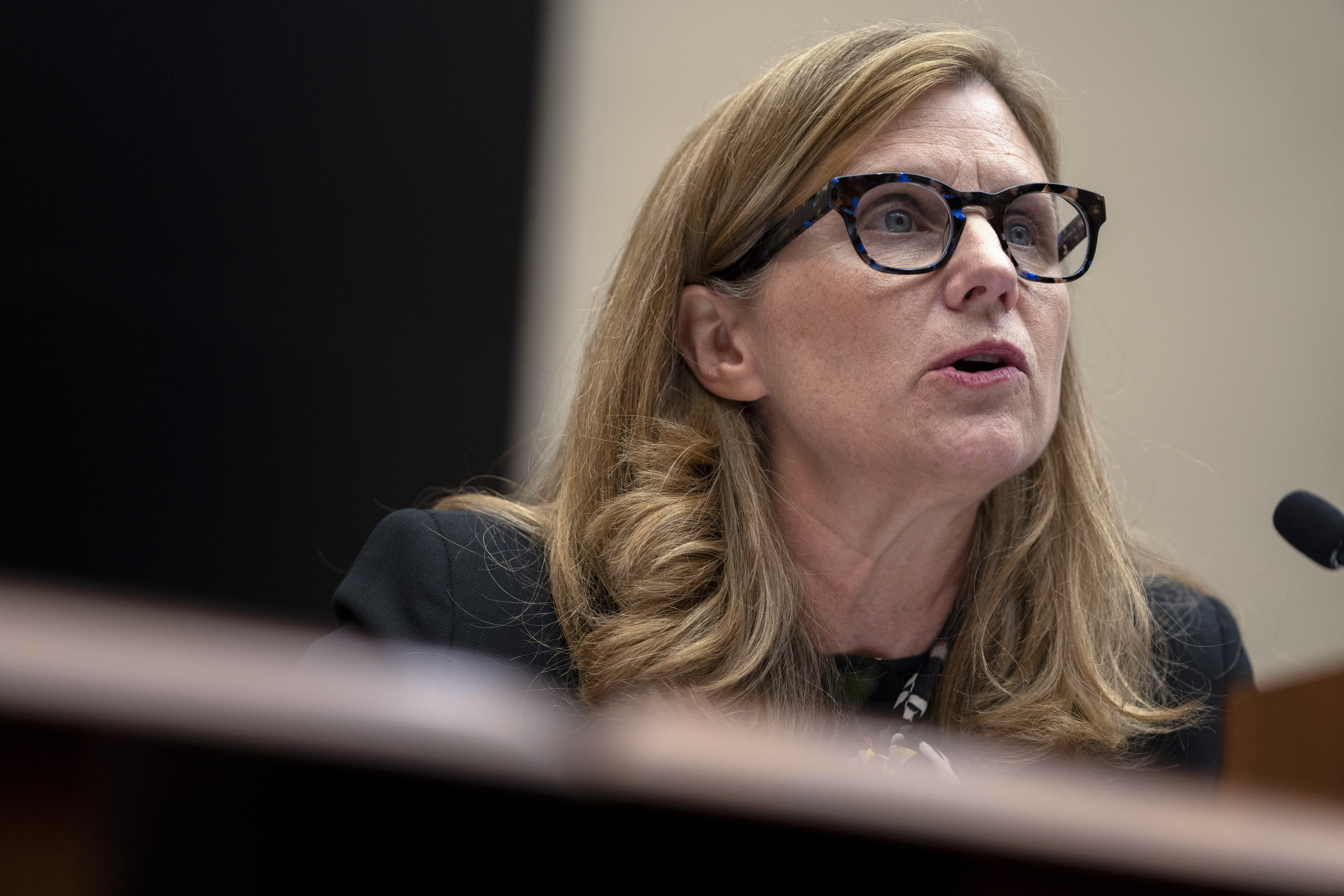
The White House on Monday declined to weigh in on whether University of Pennsylvania President Liz Magill's decision to step down from her role following a contentious House hearing on antisemitism last week was the right one.
But her choice to walk back remarks she made about pro-Palestinian protests on campus that sparked a flurry of outrage among lawmakers and UPenn donors was “the right thing to do,” White House spokesperson Andrew Bates said during a gaggle Monday, as President Joe Biden headed to Pennsylvania for an unrelated event.
“The president believes strongly that this is a moment to put your foot down and to ensure we have moral clarity,” Bates told reporters. “I saw that [Magill] issued a statement withdrawing those comments. That was the right thing to do. I've seen others have done the same. That was the right thing to do.”
Magill’s resignation over the weekend came just days after a House Education committee hearing last week. She and Harvard President Claudine Gay and Massachusetts Institute of Technology President Sally Kornbluth have faced intense blowback and calls for their resignations after a clip of their responses to questioning from Rep. Elise Stefanik (R-N.Y.) went viral shortly after the hearing.
“Does calling for the genocide of Jews violate Penn’s rules or code of conduct, yes or no?” Stefanik asked Magill on Tuesday, to which Magill responded: “If the speech turns into conduct, it can be harassment.”
Stefanik slammed the response, saying: “Conduct meaning committing the act of genocide? The speech is not harassment? This is unacceptable.”
The other presidents responded similarly to the question, saying that while they personally did not agree with the rhetoric used, they were committed to preserving free speech on campus.
Gay walked back her testimony in a statement the day after after the hearing, and has since apologized for her remarks. “When words amplify distress and pain, I don’t know how you could feel anything but regret,” she said in an interview Friday with The Harvard Crimson.

 11 months ago
11 months ago








 English (US)
English (US)